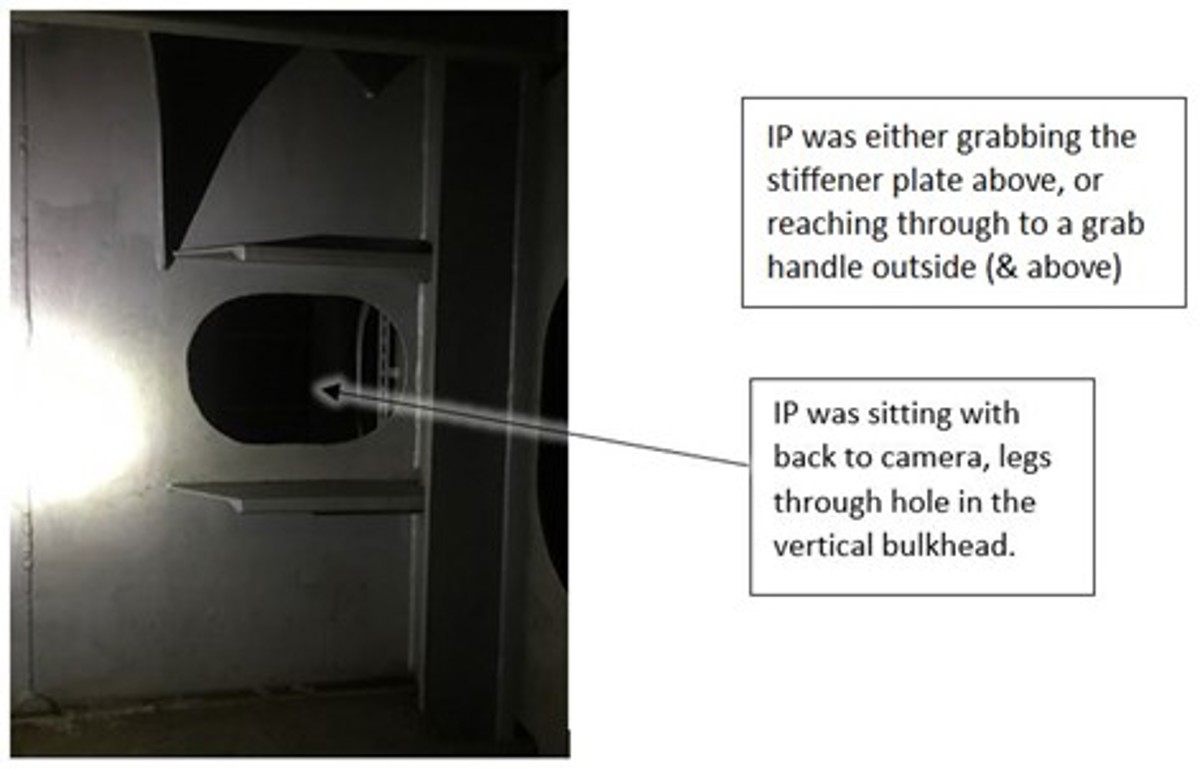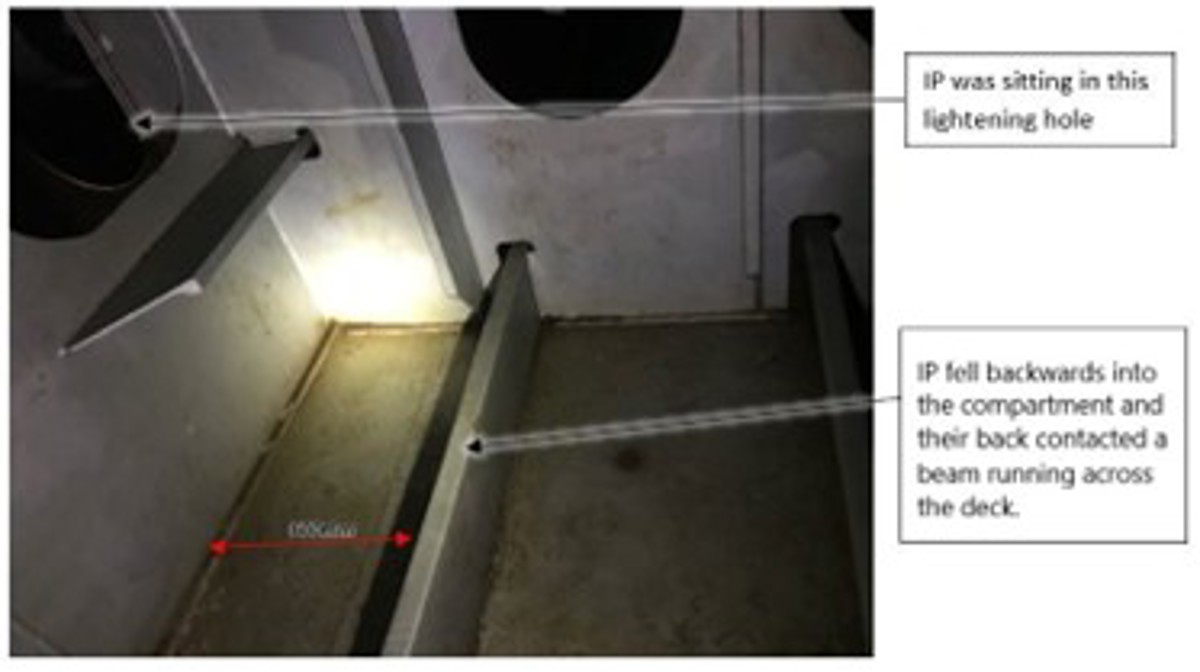LTI: Back injury in Confined Space (Tank Entry)
- Safety Flash
- Published on 4 June 2025
- Generated on 5 March 2026
- IMCA SF 10/25
- 2 minute read
Jump to:
A worker sustained a back injury while transiting through a lightening hole within a confined space.
What happened?
The incident occurred during completion of planned maintenance. Whilst attempting to get out of the confined space through a lightening hole by moving feet-first (face up), the worker’s hands slipped and they fell back, striking their lower back on a beam at deck level. The worker was still able to exit the compartment and confined space unassisted. Onshore medical assessment/treatment, however, was subsequently required.

What went wrong?
The technique used for getting out of the compartment feet first, grabbing a stiffener plate or grab handle (both above the opening), dictated a body positioning facing upward. Because of that body positioning, facing upwards, the worker was reliant on hand grip, and thus unable to stop the fall when their grip was lost.

What was the cause?
· Vessel design – and hence confined space ldesign - is centred on structural requirements, rather than ergonomics.
· Design of the access/egress arrangements meant that there was only one grab handle outside the compartment.
· The risk assessment did not sufficiently cover getting into and out of, and moving around within, the confined space.
Lessons and actions
- Risk assessments for confined space predominantly focus on the WORK being done – rather than on how to get in and out of the confined space.
- Design of access/egress points are normally based on structural requirements, rather than ease of access for the worker. The task risk assessment process plays an important role in identifying and mitigating associated risks.
- Normalisation of high-risk activities can occur when the same activity has been undertaken multiple times – as perhaps with planned maintenance.
- Our member installed further grab handles inside the compartment, and investigated possible installation of platforms (after evaluation) on either side of the lightening hole to help crew get in and out of the space.
- Our member held a comprehensive review of its own Confined Space Entry procedures in light of this incident, looking into such issues as
̶ Getting in and out of confined spaces.
̶ How to move safely and position the body correctly when transiting through difficult spaces in voids and tanks and through frames and lightening holes.
Related Safety Flashes
-
IMCA SF 07/24
27 March 2024
-
IMCA SF 12/20
31 March 2020
-
-
IMCA SF 04/09
2 April 2009
IMCA Safety Flashes summarise key safety matters and incidents, allowing lessons to be more easily learnt for the benefit of the entire offshore industry.
The effectiveness of the IMCA Safety Flash system depends on the industry sharing information and so avoiding repeat incidents. Incidents are classified according to IOGP's Life Saving Rules.
All information is anonymised or sanitised, as appropriate, and warnings for graphic content included where possible.
IMCA makes every effort to ensure both the accuracy and reliability of the information shared, but is not be liable for any guidance and/or recommendation and/or statement herein contained.
The information contained in this document does not fulfil or replace any individual's or Member's legal, regulatory or other duties or obligations in respect of their operations. Individuals and Members remain solely responsible for the safe, lawful and proper conduct of their operations.
Share your safety incidents with IMCA online. Sign-up to receive Safety Flashes straight to your email.